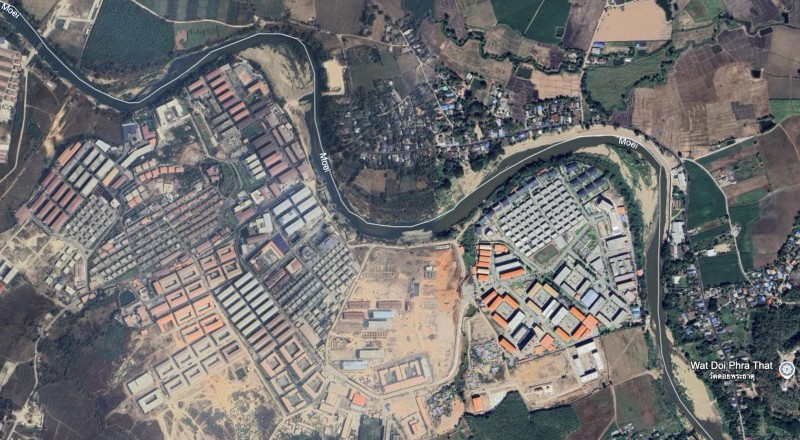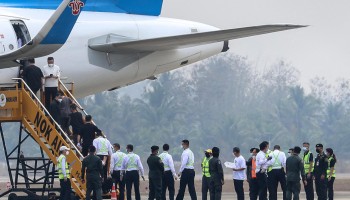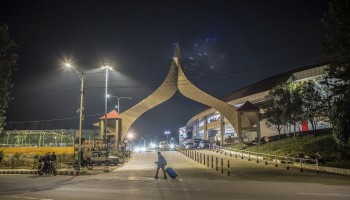Reported by
Myanmar’s military has arrested over 2,000 people in a raid on a sprawling scam center on the border with Thailand, according to state media. The raid also saw the military seize dozens of Elon Musk's Starlink satellite internet terminals.
The raided cyberscam compound, KK Park, was allegedly used by international criminal syndicates to carry out money laundering, online fraud, and romance and investment scams, according to the Myanmar Alin Daily.
A total of 2,198 workers were arrested at the center during the raid, and 30 Starlink satellite receivers were seized.
The raided cyber compound reportedly consisted of ten completed one-story buildings, 100 two-story buildings, 20 four-story buildings, two five-story buildings, 20 one-story shophouses, 30 two-story shophouses, 15 one-story garages, 20 two-story garages, 20 four-story garages, 21 two-story buildings under construction, 10 three-story buildings, five four-story buildings, five five-story buildings, and two one-story dispensaries.
Authorities did not find any official permits, construction permits, or land ownership certificates for any of the buildings in the compound, reports said.
Construction of the KK Park compound allegedly began in 2020 and was completed after the 2021 military coup, according to activist group Justice for Myanmar.
KK Park is one of dozens of cyber scam centers on the Myanmar-Thailand border. According to data from the Australian Strategic Policy Institute (ASPI), the number of Myanmar scam centers on the Thai border has surged from 11 to 30 since 2021, expanding by an average of 13.5 acres per month over the past four years.
The cyberscam syndicates largely rely on human trafficking to fuel their illicit operations, recruiting people from across Asia with legitimate-sounding job offers and then forcing them to work in scam centers. Many recruits arrive in Thailand and are brought across the border into Myanmar, where they are held in compounds.
The ruling junta itself is accused of facilitating cyber scam operations. In May, the U.S. Treasury Department designated the Karen National Army (KNA) as a "transnational criminal organization" and sanctioned three of its leaders. A 2024 investigation by Deutsche Welle revealed that troops of the Karen Border Guard Force (BGF) were providing security at KK Park.
The United Nations estimates that scam operations based in Southeast Asia siphoned between $18 billion and $37 billion from victims in East and Southeast Asia last year alone.





